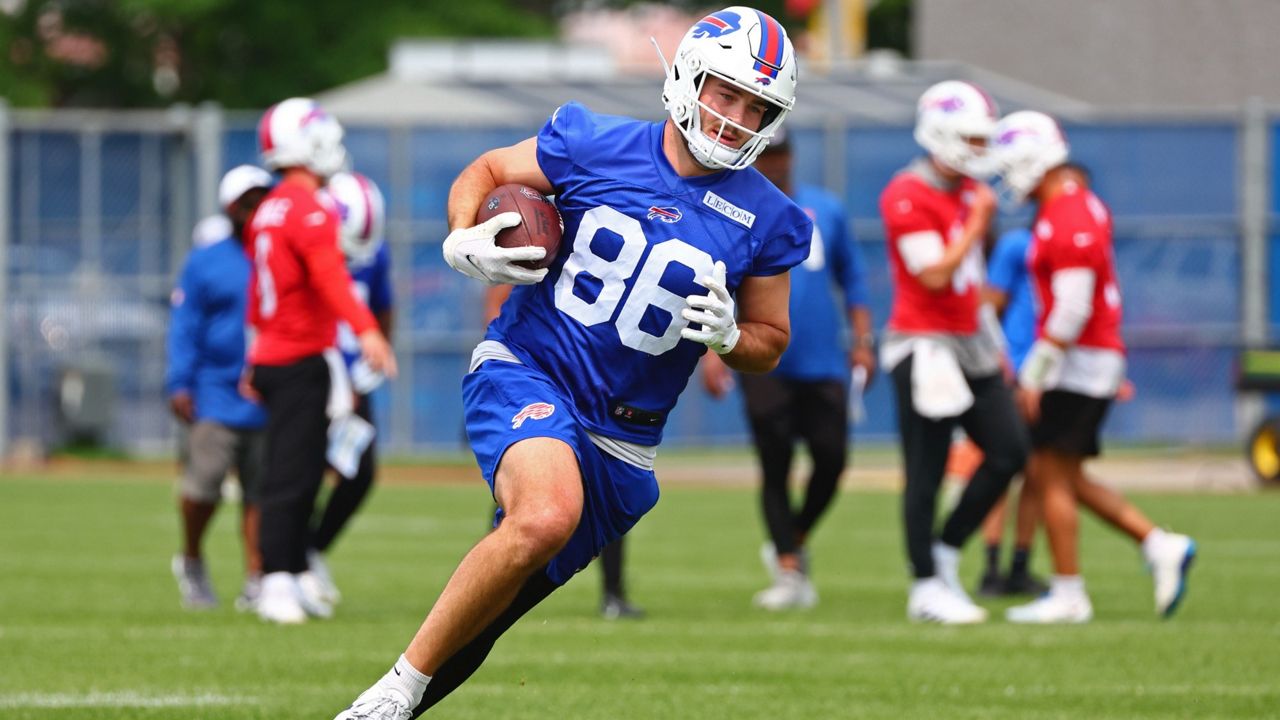As people across the state receive the COVID-19 vaccine, some other segments of the population feel left out.
Christine Sirianni, the president of the Family & Friends Down Syndrome Association of Niagara, said she's gone from being very socially involved to “socially isolated and excluded."
The pandemic has been tough on her daughter, Andrea.
"My daughter went from being very actively involved and since March 9, been pretty much in lockdown at home,” she said. “It's affecting her health."
Andrea, 32, who has congenital heart disease and down syndrome, is hoping things turn around soon now that Americans all over the country are getting vaccinated. But the vaccine rollout here in New York has proved to be a bit tricky for her.
"I could not get her registered based on that. She does not live in a traditional certified agency group home so to speak,” Sirianni said. “The only way that she would qualify was because of her place of employment.”
Since Andrea works at a primary care health clinic, she's been able to register to get vaccinated. But that hasn't been the case for others with intellectual and developmental disabilities.
Emily Mondschein, the executive director at GiGi’s Playhouse Buffalo, said Governor Andrew Cuomo expanded the vaccinations to those 65 and up as well as to people who had comorbidities or medical complexities.
“So down syndrome, according to the CDC, is on that list of people,” Mondschein said. “So when people locally in Western New York started to try and get the vaccine, those who had down syndrome, they found that they could not get this vaccine unless they lived in a congregate or group home setting."
As a result, Emily, Christine, and Oishei Children's Hospital, with the support of several advocacy organizations, sent a letter this month to Governor Cuomo and State Health Commissioner Howard Zucker with a list of recommendations.
Among them is prioritizing those 16 and up with intellectual disabilities and developmental disabilities in the vaccine rollout. In the letter, they recommend adding people with ID/DD who are ages 16 and older in Phase 1B.
The letter cites research showing people with those disabilities as being more likely to be hospitalized and die from the virus than the general population.
"Many patients and people with intellectual and developmental disabilities also have medical comorbidities and those medical comorbidities will put them at higher risk,” said Dr. Stephen Turkovich, the chief medical officer at Oishei Children’s Hospital. “Sometimes it's difficult to manage respiratory illness when you have decreased mobility. It's ten times more difficult to actually get a good cough and that can potentially make the virus much worse."
Mondschein says someone from the state got back to them saying they agree, but the state just doesn't have supply of COVID-19 vaccines at the moment.
"We shouldn't just wait until they get more vaccines and then add them to the group,” Mondschein said. “They're going to be two groups behind and by then how many deaths? How late will it be by then? So why don't we get the infrastructure in place.”
"If we got the priority rating that we feel we are deserving of, would we have the vaccinations in their arms? Would we have individuals out and more active in the community? I would say most likely yes," Sirianni said.









